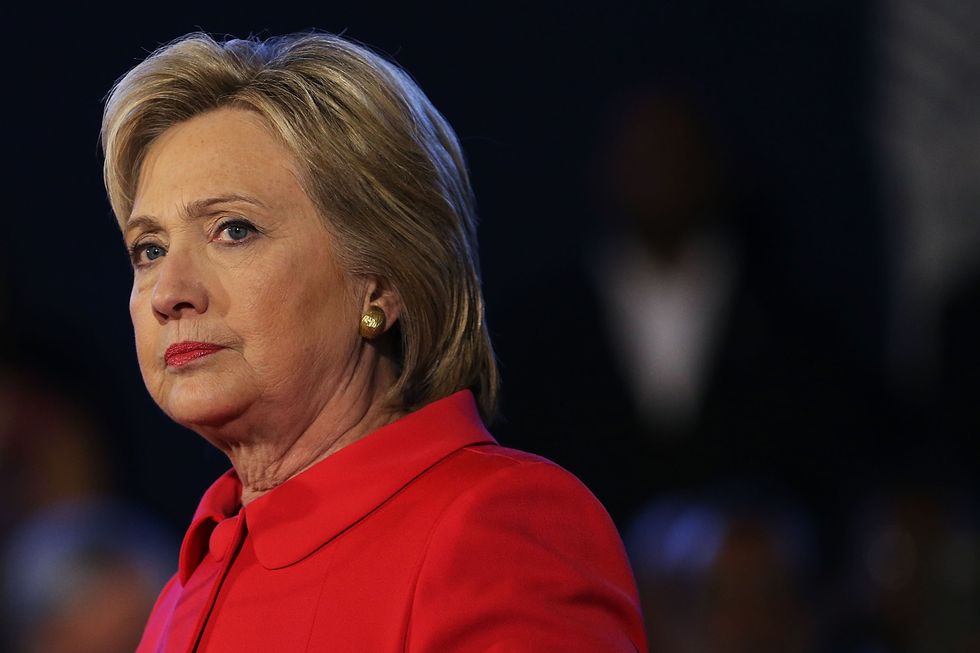
Spencer Platt/Getty Images

A federal judge has ordered the unsealing of the search warrant at the center of the October reopening of the FBI’s criminal probe against Hillary Clinton for her use of a private email server, which came just less than two weeks before last month’s presidential election.
U.S. District Court Judge P. Kevin Castel said in a court order Monday that the October warrant and any related records must be released Tuesday by noon — unless a higher court steps in. According to Politico, Castel issued his order after a California lawyer, Randal Schoenberg, filed suit to have the records unsealed.
The warrant was issued in late October after the FBI requested permission to access a laptop that reportedly belonged to Anthony Weiner and Huma Abedin. The laptop pertained to Clinton because, shortly after seizing it during the investigation of a separate federal case against Weiner, investigators found Clinton-related emails from the private Clinton email server stored on the device.
According to Reuters, Castel said in his order that he would allow the redaction of two identities in the release — thought to be that of Weiner and Abedin, though it's unclear — due to "strong privacy" interests. However, he did confirm that one of the identities is the subject of another "ongoing criminal investigation."
"The judicial determination whether to grant a search warrant, and thus allow the government to enter and search private property, directly affects individuals' substantive rights," Castel wrote. "Documents that a court relies on in making this determination, such as affidavits, directly affect the court's adjudication of those rights. ... The common law presumption of access to the search warrant and related materials sought by this applicant is thus entitled to great weight."
The Justice Department initially opposed the unsealing, Politico reports, but finally agreed after Castel said he would allow two of the identities to be redacted.
The department also asked that the names of FBI agents involved in the case be redacted for obvious national security and intelligence concerns.
"The government has a strong interest in not compromising the activities of agents working in these sensitive areas," Castel wrote.
FBI Director James Comey announced in a letter to Congress in late October — just 11 days before the election — that he was reopening his bureau's case against Clinton after his agents had discovered the new emails. But he quickly announced in a second letter that no new information have been uncovered.
Still, many Democrats, including Clinton herself, have blamed Comey for the former secretary of state's loss to President-elect Donald Trump on Election Day.